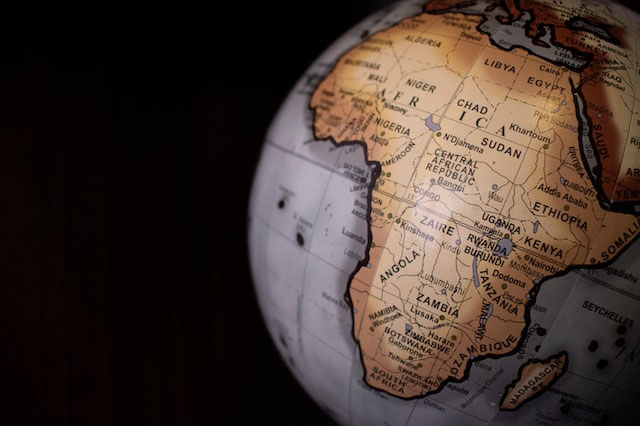Alessandro Arduino, King’s College London
Mercenaries have been a fixture in Africa since the second half of the 20th century. They have been used to protect incumbent leaders or install new ones in conflict zones.
Their offering – guns for hire – has remained essentially the same for decades. However, they’ve recently undergone an evolution that forces countries to look more closely at their roles – which range from technical advisers to frontline combatants.
Today, mercenaries are employed to advance states’ foreign policy. And Moscow is leading the way.
Libya, Sudan, Mozambique, the Central African Republic, Mali and the Democratic Republic of Congo have offered lucrative natural resource contracts and a landing pad for the return of Russia to Africa. Russia first gained influence on the continent during the Cold War era of the late 1940s when African states picked sides in the battle between the west and the Soviet Union.
Moscow still considers Africa a region where it can project power – and profit from abundant natural resources. Russia’s strategy this time is rooted more in profit-seeking than ideology. It’s about cost efficiency and crude realpolitik, which pays little attention to morals or ethics.
While the Russian army is bogged down in a war with Ukraine, mercenary outfits like the Wagner Group – a quasi-private military company – are a placeholder for Moscow’s geopolitical interests in Africa.
Under President Vladimir Putin (1999-2008, and from 2012 to present), Russian private military companies and mercenaries have become an essential component of Russian foreign policy.
In Africa, the Wagner Group has found a fertile ecosystem to spread Russian influence.
Over the last seven years, while researching on Chinese private security companies in Africa, I have also mapped the evolution of mercenaries and private military companies from Russia and Turkey across the region. In my view, in Africa, Russia has used the Wagner Group to protect influential leaders and advance Moscow’s geopolitical agenda.
The group helps secure mega investments and intervenes in crisis-ridden hotspots, often without regard for civilian losses. This profoundly affects the continent’s stability.
What is the Wagner Group?
Since Putin took power in 2012, the Russian ministry of defence has operated without independent parliamentary oversight.
Individual relationships have superseded military and intelligence bureaucracy. Private networks have allowed Putin’s inner circle to work in the shadows, and promote the use of paramilitary groups and mercenary outfits.
The Wagner Group is believed to have been set up by retired colonel Dmitri Utkin – providing a link between the group and Russia’s military intelligence service. Details of its origins are obscure, but the outfit first hit international headlines in 2014 after Russia’s invasion of Crimea, eastern Ukraine.
The Wagner Group is thought to be financed by Yevgeny Prigozhin, a catering magnate turned notorious commander.
For years, the Wagner Group denied any official links to the Kremlin, the seat of Russian power. However, Prigozhin came out in the open in social media exchanges between himself and Russia’s top military officials.
Considering the Kremlin’s penchant for military deception, however, Prigozhin could be an actor in the story. He may not necessarily hold the leading role.
Sergey Sukhankin researches Russian private military companies. He says Prigozhin is not an oligarch (an extremely wealthy Russian with political and social sway) able to create his own private army.
He likely represents another layer of obfuscation between Wagner and its absolute puppet master.
Why Africa?
From Mali to Sudan, the Wagner Group benefits from a lucrative combination: political instability, abundant natural resources and low-intensity armed opposition.
In Sudan in 2017, the Wagner Group provided security and logistical support to protect former president Omar al-Bashir. In exchange, Russian businesses secured diamond mining concessions.
In the Central African Republic, which has rich diamond and gold deposits, the group began supporting the government’s battle against rebel groups in 2017. In exchange, Russian advisers have gained the state’s ear on political and economic matters.
In gas-rich Mozambique, the Wagner Group supported government forces fighting insurgents in the country’s north. A month before Wagner’s deployment in September 2019, Mozambique signed agreements on mineral resources, energy and defence with Russia.
In Mali in 2021, the government contracted the Wagner Group to fight extremism in the Sahel. Russia’s foreign affairs minister, Sergei Lavrov, confirmed this.
But reports of Russian mercenaries’ violence towards non-combatants keep growing.
UN experts have called for investigations into the group’s role in the massacre of several hundred civilians in Mali in March 2022. In January 2023, the US labelled Wagner a criminal organisation.
The group’s growing footprint in Africa has been met by tighter sanctions against its leaders and their companies. The US and European Union have led the charge. Sixteen European nations, including France, the UK and Germany, have cited the Russian government’s involvement in providing material support in Wagner Group’s deployment in Mali.
What next?
Despite the international uproar, sanctions have limited impact. It’s likely that Russian mercenaries will continue to increase their footprint in Africa.
In my view, the Wagner Group’s growing presence in Africa illustrates that “manageable chaos” is the final goal.
This means maintaining insecurity and profiting from the ongoing instability via exploitative relationships with multiple African governments.
The Kremlin’s continued reliance on the Wagner Group sheds light on the strategic importance of Africa in Russia’s foreign policy. As Moscow seeks to tap into Africa’s natural resources and challenge western influence, it’s found a receptive audience among states dissatisfied with the west’s track record.
The history of mercenary activity in Africa serves as a cautionary tale, however.
The exploitation of “manageable chaos” for profit leads to resource depletion, corruption, human rights abuses and impaired long-term development. Uncovering the true security capabilities of these mercenary outfits is a necessary step towards accountability and legitimacy.![]()
Alessandro Arduino, Affiliate Lecturer, King’s College London
This article is republished from The Conversation under a Creative Commons license. Read the original article.
Follow African Insider on Facebook, Twitter and Instagram
Source: The Conversation
Picture: Unsplash
For more African news, visit Africaninsider.com


